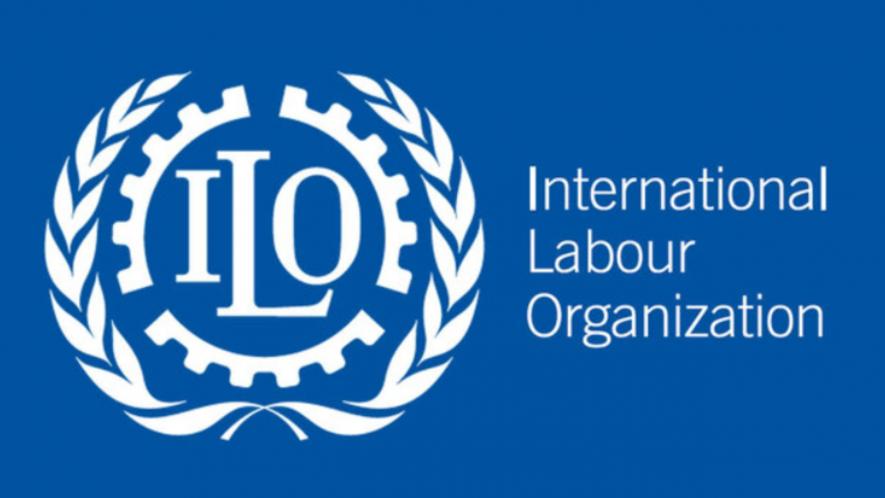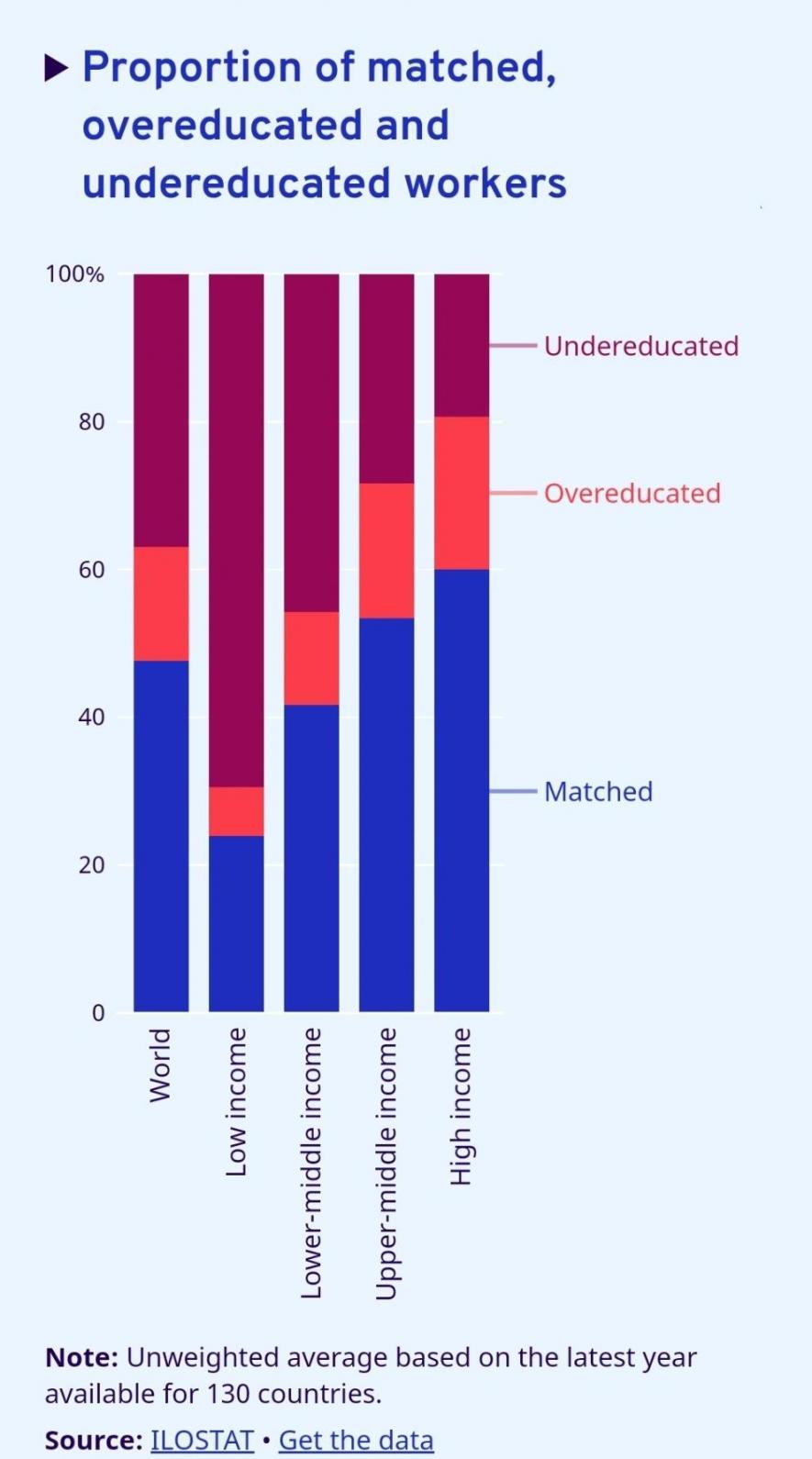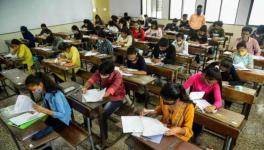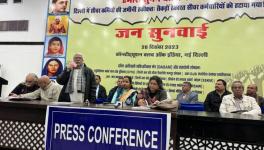Only Half of World's Workers Hold Jobs Corresponding to Their Education: ILO Report

Only half of the workers worldwide hold jobs corresponding to their level of education, according to a recent report by the International Labour Organization (ILO). The report pointed out that many people are working in jobs that do not match their level of education, while at the same time, many employers claim to have difficulties in finding workers with the skills that they need to expand their business and innovate successfully. This phenomenon points to a significant disconnect between the world of education and the world of work, the author of the report said.
According to the report, over the years, considerable effort has been invested in improving the educational attainment of people worldwide, especially as part of the implementation of the Millennium Development Goals and the Sustainable Development Goals. "However," it said, "the enormous progress achieved in raising levels of education, especially among women and girls, has not translated into corresponding improvements in labour market outcomes."
The report has been compiled with the help of labour force survey data on the level of education and occupations of all employed workers in over 130 countries. The ILO estimated that only about half of these workers hold jobs corresponding to their level of education. The remainder of the workers is either overeducated or undereducated for their jobs.
According to the ILO, workers in higher-income countries are more likely to hold jobs that match their level of education. In high-income countries, this is the case for around 60% of the employed. The analogous shares for upper-middle and lower-middle-income countries are 52% and 43%, respectively. In low income countries, only one in four workers hold jobs corresponding to their level of education. These observations suggest that the rate of matching increases with countries’ level of development.

According to the report, qualification and skills mismatches have become an issue of particular concern for policymakers in both developed and developing countries, following rapid changes in labour markets, globalisation, labour migration, technological change and demographic shifts. It said, " It is now a global priority to streamline qualifications and occupational skills with a view to ensuring better employment outcomes and employability for workers and increased productivity and competitiveness for their countries."
The ILO found that although overeducation and undereducation are both to be found in all countries, regardless of their income level, there are different patterns for the various country income groups. Undereducation is more prevalent in low income countries, while overeducation occurs more frequently in high income countries.
In high and upper-middle income countries, around 20% of all employed are overeducated, i.e., they have more education than is required for their jobs; the corresponding share for lower middle income countries is around 12.5%, while in low income countries it is less than 10%. Higher rates of overeducation in higher-income countries are likely to be driven by the composition of the labour force, which is characterised by a relatively high level of education, according to the report.
The author explained that a certain degree of overeducation will always exist because some individuals accept jobs below their level of education, either because these jobs offer specific advantages, such as less demanding and stressful work, enhanced work-life balance, better social protection, shorter commuting times and increased social responsibility, or because they lack experience. For some of these workers, overeducation may only be a temporary situation.
The report added, "However, when overeducation is due to labour market distortions where the supply of workers with a higher level of education exceeds the demand, it tends to be a longer-term phenomenon and usually calls for policy interventions."
Undereducation is also observed in both low and high-income countries. Low income countries have the highest proportion of undereducated workers: approximately 70% of the employed have less education than is required for their jobs, according to the report. The analogous share for lower-middle-income countries is around 46%, while in middle-income and high-income countries it is about 20%.
According to the author, the main reason for undereducation is the relatively low level of educational attainment of the existing workforce and/or lack of formal qualifications, especially in low income countries. "Some of these undereducated workers may still be able to do their job properly because they have gained the necessary skills through on-the-job training, experience, self learning, social activities or volunteering," the report said.
Women in high income countries are more likely than men to be overeducated, while women in lower income countries are more likely to be undereducated, according to ILO.
The report said that when the data were disaggregated by sex, it was seen that both women and men face difficulties in finding jobs that match their education. However, while in higher‑income countries there is no significant difference between the two sexes in terms of the level of matching, women in lower-income countries are less likely than men to have jobs that correspond to their level of education.
In high-income countries, the rate of overeducation is higher for women than for men; in upper‑middle‑income countries, there are no significant differences; and in lower‑income countries, women are more likely than men to be undereducated for the jobs they perform.
"These differences in the patterns of educational mismatch between women and men, and between lower‑ and higher‑income countries, suggest that as a country becomes more developed, many well‑educated women will end up in jobs that are below their level of education," it said.
"Despite the considerable progress in improving access to education and raising the level of educational attainment of people worldwide, many workers are still undereducated for the jobs they carry out, especially in low-income countries. At the same time, many people in high‑income countries are working in jobs that require a lower level of education," the report added.
Get the latest reports & analysis with people's perspective on Protests, movements & deep analytical videos, discussions of the current affairs in your Telegram app. Subscribe to NewsClick's Telegram channel & get Real-Time updates on stories, as they get published on our website.
























